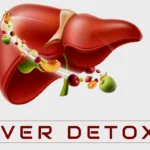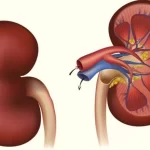What are kidney stones?
Kidney stones are also known as appendicitis and nephrolithiasis. Actually, the stone is a type of solid waste material that starts to form in the kidney and develops into a crystal.
There are many types of kidney stones, 80 percent of which are caused by calcium and oxalate. At the same time, the reason for the formation of other stones is substances like strite, uric acid, and cysteine (1). Kidney stones can be small or large in size. Small stones usually do not cause many problems, but if they are large in size, there may be an obstruction in the urinary system.
In some cases, a person suffering from kidney stones suffers from unbearable pain, vomiting, and bleeding. The study shows that once the problem of stone is fixed, it can be fixed again in the next 10 years (2).
Some of the major causes of kidney stones.
Kidney stone problem can be caused by the following reasons (3)
Kidney stone problems can occur due to increased levels of substances like calcium, oxalate and uric acid in the urine. Stones can also develop due to medical conditions that increase calcium, oxalate and uric acid levels in the body.
Certain chemical substances present in most people’s urine prevent alkali particles from mixing with each other, which does not form stones. Urethral stones are the main cause of unbearable pain in the stomach. But in many people there is a possibility of stones due to the following reasons:
- The habit of drinking less water.
- Tried to be a hereditary stone.
- Frequent urethral infections.
- Urethra obstruction.
- Excess intake of vitamin ‘C’ or calcium-containing drugs.
- Stay shay for a long time.
- Having trouble with hyperparathyroidism.
Symptoms of Kidney Stone.
- Pain while urinating.
- Difficulty urinating or small amounts of urine.
- Smelly urine.
- Severe pain in the back, arms, lower abdomen.
- Pink, red or brown urine.
- Frequent urination.
Kidney stone systems may mean kidney stone problems. If the pain persists for a long time, it can be a sign of these troubles –
- fever
- Chills etc.
- Nausea
- Vomiting
After knowing the symptoms of kidney stones, learn more about the symptom of kidney stones.
Typical symptoms of appendicitis
- The pain of stones depends on the location, size, type, and length-width of the stone. Stony pain starts suddenly. In this pain, stars start appearing in the day, that is, the pain is very unbearable.
- Kidney stone pain starts from the waist and comes forward towards the pelvis.
- Bladder stone pain occurs in the pelvis and place of urine.
- This pain is aggravated by walking or jerking when traveling in a vehicle on bumpy roads.
- This pain usually lasts for hours. Later, it gradually decreases on its own.
- Mostly because the pain is very high, the patient has to go to the doctor and to reduce the pain, medication or injection is required.
Prevention of kidney stones
To avoid kidney stones in the future, you must follow the following tips.
Stay hydrated, keep the process of drinking water throughout the day. More than 3 liters or 12 to 14 glasses of water and liquids should be taken daily. This is the most important way to prevent stones from forming. The total quantity of daily water is more important than the quality of drinking water to prevent stone formation.
It is important to urinate more than how much water has been drunk to prevent stone formation. If you urinate more than two liters per day, this water must be drunk. If the urine turns out to be water all day, it means that a sufficient amount of water has been taken. Thickened urine indicates that water is taken in small quantities.
Drinking more water is very important for the treatment of stones and to prevent them from re-forming. Apart from water, other beverages such as coconut water, barley water, syrup, diluted whey, unsalted soda, lemon, etc. should be consumed.
During a particular time of day, the urine becomes less and puffy (thick). At this time, due to the high amount of alkali in the urine, the process of stone formation starts very soon, which is very important to stop. To prevent stones from being forgotten –
- During the three hours after the meal, immediately after working hard and
- It is very important to wake up before midnight and drink two glasses or more of water between midnight.
Thus, at the time of day when the risk of stone formation is high, drinking more water and fluids during this time makes it thinner, clearer and more urine, which can prevent stone formation. (You can also read- Kidney Cancer)
Diet control for kidney stones
Keeping the type of stones in mind, keeping complete vigilance and avoiding eating helps to prevent stones from forming.
Salt should be taken in small quantities in food and should not eat high salt foods such as salt, papad, pickle. This is very important information to prevent stones from forming. Unfortunately, most patients are unaware of this information.
The proof of a sufficient quantity of water being taken is to have clear urine-like water all day. Consuming lemonade, coconut water, mausambi juice, pineapple juice, carrots, bitter gourd, tomato without seeds, banana, barley, oats, almonds, etc. help prevent stone formation. Therefore, it is advisable to take them in large amounts.
The assumption that stone patients should not eat high calcium foods such as milk production is wrong. Adequate calcium is added to the food in the food substance’s oxalate. This reduces the exploitation of the oxalate by the intestines in the stomach and helps to prevent stones from forming. Vitamin ‘C’ should not be taken in large amounts (4 grams or more).
Avoiding stones with oxalate:
The food items with more oxalate mentioned below should be taken less: In vegetables, tomatoes, ladyfinger, eggplant, drumstick, cucumber, spinach, amaranth, etc.
Among the fruits – Chiku, Amla, Strawberry, Raspberry, Sharifa and Cashew.
Drinks include Kadak Boiled Tea, Grape Juice, Kedbury, Cocoa, Chocolate, ThumsUp, Pepsi, Coca Cola.
Avoiding for uric acid stones:
The following food items that can increase uric acid should be taken less.
Sweet Bread, Whole Wheat bread Dal, Peas, Beans, Lentils Stones can occur again in up to 80% of patients, so it is always important to avoid and get information tested.
Vegetable: Cauliflower, Brinjal, Spinach, Mushroom
Fruits: Chiku, Sitaphal, Kaddu
Carnivores: Meat, Rooster, Fish, Egg, beer Wine
Treatment by medicine:
In patients who have high calcium content in their urine, such patients are given thiazides and citrate medicines. For uric acid stones, allopurinol and urine are recommended for the use of alkaline drugs.
Routine Testing:
In most patients, there is a possibility of appendicitis or regrowth after being removed from treatment and many patients still have symptoms of appendicitis. Therefore, it is important to get a sonography test done every year, even if there is no problem. Sonography examination may indicate no stones or diagnosis of appendicitis.
Oxalate is a chemical compound, which is found in many foods. An excessive amount of oxalate can cause kidney stone formation. Therefore, do not consume as much oxalate-rich food as possible. Spinach, chocolate, coffee, sweet potato, and peanuts, etc. are found in more oxalate (4).
Reduce the intake of animal protein like beef, pork, fish and chicken, etc. Kidney stone problems can be troubling at any stage of age. The presence of stones depends mostly on food. Increasing the amount of salt, acid, and oxalate in food increases the risk of stones.





